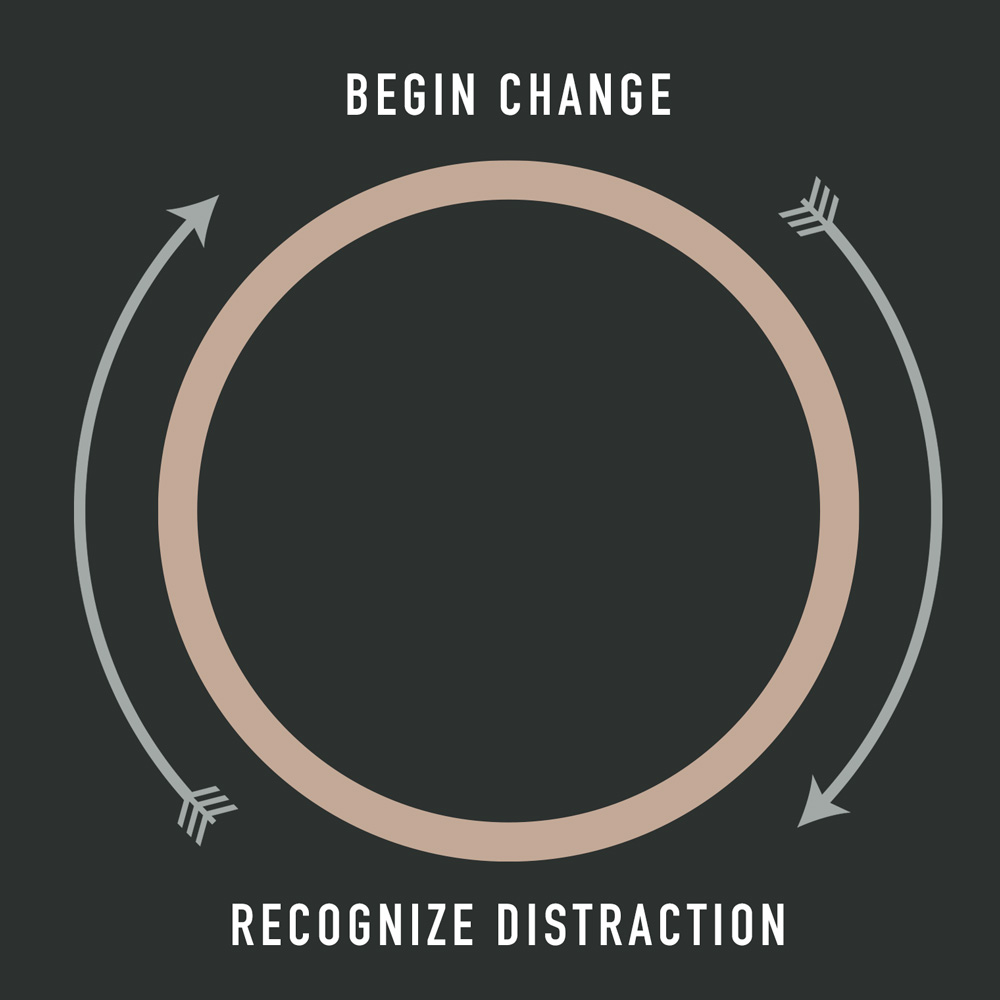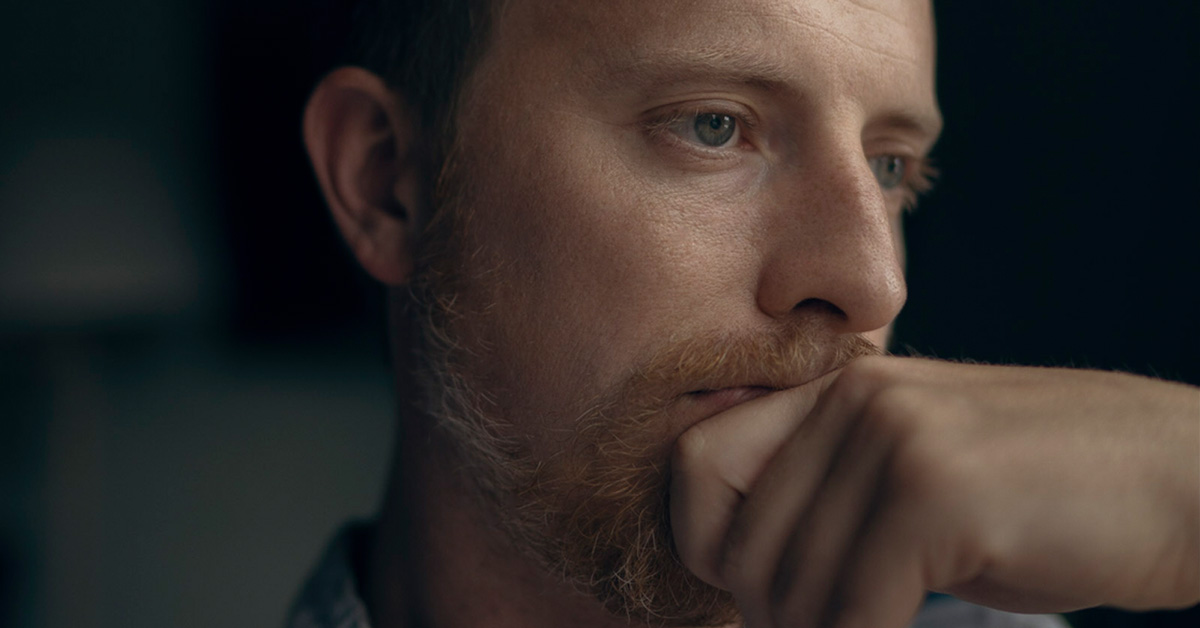There’s always talk of resolutions and life change this time of year. For many of us, the holidays represent the annual peak of veering off course whether it’s health, a side project, or career-trajectory related.
Family functions and gift gathering and the barreling corporate train toward the end of Q4 don’t leave a lot emotional energy for nice-to-have future goals. Plus, lots of great food you don’t get the rest of the year can take priority over weight watching.
But now it’s January: “New year, new me.”
Inevitably, with all the talk of resolutions, there’s been increasing scorn of the yearly revamp. The pessimistic naysayers dismiss resolution-goers as dreamers who will be off course by February. They commiserate with the other regulars at the gym about all the new people and how hard it is to get a squat rack now.
What bothers me more about the negativity surrounding resolutions is the dedicated and diligent among us, who sneer, “I don’t wait for New Years to recalibrate.”
The tradition of New Year's resolutions, originating about 4,000 years ago with the Babylonians, has evolved from religious promises to gods into modern secular commitments focused on self-improvement.
The cycling of the calendar is used as a reminder to recollect oneself and refocus on whats important.
New Years Reflection = Meditation
On a different scale, this is exactly the same as the introspective and restorative practice of meditation. In mindfulness meditation, for instance, you sit and attempt to focus on your breath. You will inevitably start thinking, maybe even immediately. But when you realize that you’re distracted you return your focus to the breath.
Some people may use a guided meditation app like Headspace while others make use of timed gongs, but the purpose is the same: To use an outside voice or sound as a reminder to check if you’ve become distracted. If you have, refocus on the breath.
But just like meditation, in life it’s easy to come to and realize, oh wow, I’ve been distracted from what’s important, for like, a long time. In both situations it can be incredibly disheartening and frustrating. “I’ve tried to make goals before, and look, I got nowhere with them. What’s the point?”
To do this is to miss the point of the process.
The following 3 frameworks will serve as the mindset for determining what will create a fulfilling life for you and result in meaningful change. Over the next week, we'll highlight practical tools and methods that can help you rediscover what's truly important to you.
When You Get Away from Your Goals & Habits, “Simply…Begin Again”
Prominent meditation teachers like Sam Harris and Joseph Goldstein offer a tip for when we get distracted: Release the disappointment or frustration, don’t chastise yourself or give up – simply refocus your attention on what’s important and begin again:
This meditative wisdom can be a powerful tool for our New Year restarts for our goals and ambitions. Instead of succumbing to disappointment when we realize we've strayed from our fitness, nutrition, or other personal goals, the mantra of “just begin again” encourages us to refocus. It's a call to realign with what truly matters, not the fleeting emotions of disappointment or past failures.
This approach values resilience over perfection. It acknowledges that the path to personal change is not linear but inherently filled with ebbs and flows. By adopting the practice of “beginning again,” we foster a mindset that embraces every distracted moment as a new opportunity, a fresh start to recommit to what’s important, as Harris says, that is “free from the past.”

But even when you wake up from distraction, how do you determine what's important? Or what if you’re not emotionally connected to what you’re focusing on? What if you lack the drive to formulate what changes you want to make?
The Centuries Old Ground Rules for Change
Establishing a set of founding principles can be incredibly helpful when it comes to defining what's truly important in your life and creating lasting and meaningful change. An ancient Tibetan practice called Lojong, which translates to “Mind Training,” offers a profound perspective on this.
Lojong begins with what are known as the “Four Preliminaries.” They are ‘preliminary' not because they are less important or basic, on the contrary, they are the core principles everything is based on.
The tenets of the Four Preliminaries establish a brutally honest baseline of the reality we all live in and can serve as a sobering perspective as we begin again this year and decide on the types of changes that would be most meaningful to us individually.
Here is a new vision of each, in a modern secular approach for making positive change. Embrace these as the core principles your goals will be based on.
First Preliminary: Reconnect to The Preciousness of Human Life
It is easy to fall into a river of apathy, letting the tasks of our work, our family obligations, and cultural expectations dictate our life. To let the natural flow of life to define what our life is or could be.
Amidst billions of humans who have lived before us and countless more who will follow, the mathematical infinitesimal rarity of life forming into the highly specific and unique combination that became You is staggering.
In a universe where matter can neither be created or destroyed, the building blocks constituting your body could have coalesced into anything else—space gas, a primitive rodent on the bottom of the food chain 50,000 years ago, or my monstera plant that never stood a chance.

Yet, here you are—the result of an inconceivable culmination of billions of years of cosmic events. Literally everything that has ever happened in the universe had to happen just as it did for you to find yourself right here, reading this, probably on your phone, while using the bathroom.
And since matter isn’t destroyed, after you’re gone, parts of you may end up as space gas, a rodent, or some other writer’s dead plant. You’re here, in the face of improbable odds, only temporarily.
→ As we begin again, refocusing from distraction, the initial Lojong preliminary reminds us to get out of the flow of the apathy river prompted by the essential question: “What will I do with this rare human life?”
Second Preliminary: You are Going to Die, Guaranteed
Humans are wired in a weird way—we all start our lives with an unspoken assumption that the pain and death others experience are distant specters, while we remain immune.
We have a knack for sticking our fingers in our ears and going “lalalalalala” when it comes to thinking about our guaranteed death. It's an uncomfortable, even taboo subject, one we all, culturally and individually, avoid.
But the truth is undeniable: Each of us will face our mortality, and how much time we have left can never be known.
This second preliminary serves as a flag boldly planted proclaiming the impermanence of everything. Anything that can die, will die.
Facing the reality of death unveils insights and benefits that transcend the fear it often instills. As we grasp the impermanence of everything, including our own bodies, it becomes clear that excess money, possessions, and even the companionship of friends cannot provide solace when we inevitably face our death.
But paradoxically, this isn’t meant to cast a shadow of hopelessness; but instead illuminates the significance of this, and every future, moment.
Have you ever put a project off to the last minute, having a fraction of the time you thought you'd have, only to be impressed with just how much you got done in so little time? A realistic sense of just how little time we have can do the same for your life.
Coming to terms with the inescapable nature of our mortality becomes a potent motivator.
Unfortunately for many people this acceptance only comes at the end of life, reflecting on how life could have been lived, if only they could have understood what’s at stake: One day, it will be the last day.
→ You can embrace this in every moment, from here on.
Third Preliminary: Your Actions – or Inactions – Have Consequences
Karma as it’s thrown around in our culture is often misrepresented as an ominous, mystical cosmic justice system that will punish you if you do a bad thing.
Karma, in its essence, is the principle of cause and effect.
As a foundation to beginning again, it's an acknowledgment that our actions or inactions will shape the reality in which our future selves will exist.
Starting your own business or joining a gym for the first time will not guarantee you achieve your desired outcome. Between the two versions of yourself—one who makes an effort and the other who doesn't—the possibility of success exists only for the one who tries.
Regardless of how “real” any self-sabotaging thoughts may seem, the third preliminary sets in stone an inarguable truth: If you don’t take action, you will only end up with outcomes that can result from inaction.
→ If there’s a change you want to make, only you can initiate the cause that results in that effect.
Fourth Preliminary: Dedicating Your Life to Only Worldly Goals is Unfulfilling
When we hear about goals in modern media, they often revolve around familiar aspirations: launching a business to amass wealth, climbing the corporate ladder to secure a prestigious position, purchasing a home that exudes pride and investment potential, or getting shredded to be more attractive to potential partners.
However, as we begin again, the fourth preliminary reminds us that our goals should not be solely centered around attaining desirable possessions or status and self-worth.
As we refocus, it's essential to embrace that while it's acceptable to set goals that yield such outcomes, they alone will not break the desire-fulfillment cycle.
→ Think of the emptiness of short-term pleasures, such as binge-watching TV shows or indulging in excessive eating. Focusing only on superficial goals like wealth, status, and image across a lifetime create the same result.
Rethink Your Entire Approach with First Principles
Now that we've dropped our ego and embraced a fresh restart, with some sobering reminders about the reality of life, we move to the final framework that centers not only on the why, but the how.
First principles thinking, a popular business concept rooted in philosophy and popularized by figures like Aristotle and more recently Elon Musk, involves breaking down complex problems into their most basic elements and then reassembling them from the ground up for a holistic, previously unknown solution.
In business, first principles thinking is used to innovate and solve problems in a radically original way. Instead of following the usual methods or traditional industry practices, leaders and entrepreneurs deconstruct ideas to their basest elements. They then rebuild these ideas from scratch, leading to innovative solutions and strategies, not encumbered by the problems of existing ones.
A classic example of this was the wait time in an office elevator lobby. The office goers were constantly complaining about how long it took the elevator to arrive with how many people needed to get up and down during peak hours.
The building owners looked into upgrading or replacing the elevator system but due to the limitations of the building design and the estimated cost, it was clear that wasn't feasible.
So the problem was reduced to its basest parts to find a solution:
- People are angry because they have to wait too long for the elevator.
- The speed of the elevator cannot be changed.
That may seem like an impossible problem to solve, but the solution was ultimately super easy and affordable.
Instead of solving the riders' annoyance at the long wait time, the building owners installed large mirrors and televisions with the news, sports, and other content of interest.
The elevator speed did not change – but the complaints about the wait time completely stopped. The building couldn't solve the riders' perceived problem (the elevator speed), but they could make the actual problem (their awareness of waiting) go away.
As we begin again, don’t just restart the same old process you've been using for your goals, fitness habits, or relationships that may not have ever been able to solve the problem.
Apply first principles thinking to your personal goals and resolutions by stripping down your goals to their most fundamental truths and reflect on new ways that may solve the problem in a more frictionless way.
→ Ask yourself, “What is the true purpose behind this goal? What do I know is true and what am I actually trying to achieve?”
Over the next couple of weeks, we will be exploring tools and strategies that will help to begin again and refocus on what is actually important to you, using the ideas of these 3 frameworks as a foundation for dramatic and meaningful direction:
- Simply begin again: If you realize you've become distracted from your habits or goals, don't get demotivated. Clear your head and begin again.
- All decisions and brainstorming should reflect the four preliminaries:
- Your life is unfathomably rare, make use of it
- You will die. Your life is shorter than it seems, act with a sense of urgency while you still can
- The universal law of cause and effect. If you want change, you must take continual action.
- Fulfillment is not possible from buying things or being seen as important alone. Don't forget to anchor your ambitions to things that are not based on acquiring money, things, or status.
- Don't just blindly continue on a path that may not be working. Break your ambitions, goals, or problems down to their base ideas and create previously unknown, innovative solutions using first principles thinking.
















